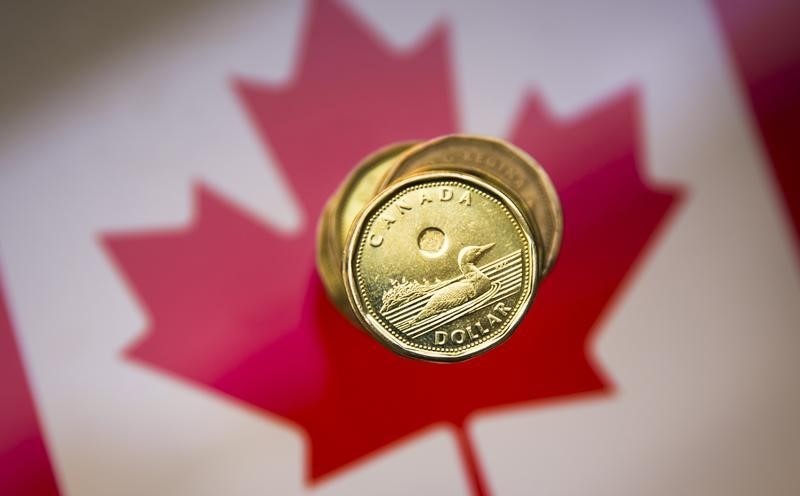* Canadian dollar at C$1.2645, or 79.08 U.S. cents
* Canadian wholesale trade falls 0.5 percent in December
* Bond prices little changed across the yield curve
* Canada-U.S. 2-year spread posts its widest since June 26
By Fergal Smith
TORONTO, Feb 20 (Reuters) - The Canadian dollar weakened to a nearly one-week low against its U.S. counterpart on Tuesday as the greenback rose broadly and domestic data showed an unexpected drop in December wholesale trade.
At 4 p.m. (2100 GMT), the Canadian dollar CAD=D4 was trading 0.7 percent lower at C$1.2645 to the greenback, or 79.08 U.S. cents.
The currency's strongest level of the session was C$1.2558, while it touched its weakest since last Wednesday at C$1.2647.
"It is pretty much a U.S. dollar move. ... I think Canada is getting lumped into that," said Mark McCormick (NYSE:MKC), North American head of FX Strategy at TD Securities.
The U.S. dollar .DXY rose to a six-day high against a basket of major currencies, extending a rebound from a three-year low last week, helped by rising U.S. Treasury yields and as some traders trimmed overstretched bets against the U.S. currency. (U.S.) dollar is finally starting to catch up to the U.S. rates story," McCormick said.
The gap between Canada's two-year yield and its U.S. equivalent widened by 3.3 basis points to a spread of -39.9 basis points, its widest since June 26.
Canadian wholesale trade fell 0.5 percent because of lower sales in the personal and household goods sector, Statistics Canada said. Analysts surveyed by Reuters had forecast a 0.4 percent increase. data "bodes poorly" for growth in the economy in December, Ryan Brecht, a senior economist at Action Economics, said in a research note.
On Friday, data showed that Canadian manufacturing shipments also declined in December. Canada's retail sales report for December is due on Thursday and the country's January inflation report is set for Friday.
The Dow and S&P 500 on Tuesday snapped a six-session winning streak as a sharp decline in Walmart (NYSE:WMT) WMT.N weighed heavily. equity markets tend to weigh on commodity-linked currencies, such as the Canadian dollar.
The price of oil, one of Canada's major exports, reached a nearly two-week high in a choppy session amid inventory declines at a key storage hub and expectations that top producers could extend cooperation beyond 2018. crude oil prices CLc1 settled 0.4 percent higher at $61.90 a barrel.
Canadian government bond prices were little changed across the yield curve. The 10-year CA10YT=RR was flat to yield 2.319 percent.
